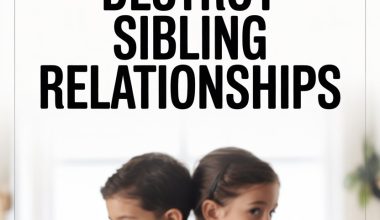Ever wish you could bottle confidence and sprinkle it on your child every morning—right after the breakfast carnage and before the shoes-on-the-wrong-feet drama?
Good news: you can nurture that self-assurance, not with a magic wand, but with a gentle approach known as “authoritative parenting.”
Not authoritarian (the drill sergeant) and not permissive (the human marshmallow), but that steady, calm middle ground that actually works—without exhausting your will to live.
Skip the pep talks and tiger-parenting lectures. Building quiet confidence is about subtle, daily choices.
What Quiet Confidence Looks Like
Picture a child who doesn’t need to shout “I’m the best!” at every school assembly, but who will raise a hand, ask questions, and recover from mistakes with a sheepish grin.
Quiet confidence wears muddy knees and mismatched socks. It shows up when your child tries again after falling off the monkey bars, or sticks up for a friend without needing an audience.
It’s about inner steadiness, not brash bravado.
What’s This Authoritative Parenting Business?
This style is the goldilocks zone of raising kids, according to a mountain of research like this piece from The Child Mind Institute. Not too strict, not slack.
Boundaries matter, but so does warmth. Kids get clear rules, consistent consequences, and plenty of love.
Children in these families tend to be more independent, socially adept, and quietly confident. They know where the lines are—and that you’ll still love them even when they wobble.
Pause Before You Rescue
Picture the scene: your child’s tower of blocks wobbles, teeters, and—oh, heartbreak—collapses.
The urge to fix, rebuild, or at least provide a seven-step troubleshooting plan is strong. But here’s the trick: resist.
Stepping back lets your child experience frustration (yes, it’s allowed) and figure things out for themselves.
Research from Harvard’s Center on the Developing Child suggests this “struggle” zone is where kids build problem-solving muscles and quiet confidence.
You’re not abandoning them. You’re showing faith in their abilities, and nothing says “I believe in you” quite like actual belief.
Be the Calm in Their Storm
Ever tried reasoning with a preschooler mid-meltdown? It’s a bit like negotiating with a small, angry octopus.
Authoritative parents don’t meet hysteria with more hysteria (tempting as that sometimes is).
A calm, steady response—“I can see you’re upset. Let’s take a moment”—teaches kids how to regulate their own emotions.
Over time, they’ll learn to ride out the storm, knowing that feelings aren’t something to fear or hide.
Psychologist Jeffrey Bernstein links this emotional coaching to greater self-assurance and better mental health down the road.
Give Choices That Matter
“Peas or carrots?” may not sound earth-shattering, but even small choices build decision-making confidence. Offer options, not an overwhelming buffet (three is plenty; we’re not running a tapas bar).
This works for bigger things, too. “Would you like to do reading before or after bath?” Suddenly, your child has a say in their routine.
They feel capable, trusted, and less likely to channel their inner rebel.
Just be ready for the odd curveball (“Can I have neither peas nor carrots and eat on the trampoline?”), and hold steady to the boundaries you set.
Celebrate Effort, Not Just Outcomes
A+ spelling test? Lovely.
But what about the child who wrote a story, erased it, rewrote it, and finally handed in a half-wonky, fully original tale? Applaud the process, not just the shiny outcome.
Praising effort (“You worked so hard on that!”) helps children value resilience and persistence.
According to Carol Dweck’s research on growth mindset, this practice leads to greater confidence and motivation than the old “You’re so smart!” routine.
Mistakes become bumps in the road, not dead ends.
Model Self-Compassion
Kids are emotional sponges. If you call yourself an idiot every time you burn the toast, guess where they’ll learn to aim their inner critic?
Try letting them overhear you say, “Well, that didn’t go to plan, but I’ll try again.” Or even, “That was tough—I’m proud I gave it a go.”
It’s not about fake positivity; it’s about showing that grown-ups can be kind to themselves, too.
Dr. Kristin Neff highlights that this attitude fosters resilience and, yes—confidence that doesn’t rely on being perfect.
Set Boundaries Like You Mean It
Authoritative parents don’t waffle. “Bedtime is eight o’clock” means eight o’clock (not eight-ish, after seventeen rounds of ‘just one more story’).
Rules are clear, predictable, and enforced with love rather than threats.
Not only does this make life easier for you (consistency is the tired parent’s secret weapon), it helps kids feel secure. When kids know the grown-ups are in charge, they can relax and focus on growing—not on pushing against shaky fences.
Encourage Gritty Curiosity
Questions. So many questions. (“Why is the sky blue?” “Can dogs eat spaghetti?” “What would happen if you married a dinosaur?”) There’s a temptation to sigh and say, “Because I said so,” but curiosity is the birthplace of confidence.
Encourage those oddball enquiries.
When you don’t know the answer, say so—and look it up together. Admitting you don’t know everything is a confidence-builder too. (And yes, you now have permission to say, “That’s a great question. Let’s find out together.”)
The American Psychological Association notes that curious children tend to become confident learners.
Let Them Face Age-Appropriate Risks
It’s nerve-racking watching your little one climb to the wobbliest rung at the playground or ride a bike without stabilisers. Still, those calculated risks help kids discover what they’re capable of.
Authoritative parents supervise but don’t smother. They spot for safety—and cheer on the wild attempts (within reason, of course; launching off the garden shed is still off-limits).
Risk-taking, when supported without overprotection, gives children the kind of confidence that whispers, “I can handle this,” even when things don’t go to plan.
Make Repair After Rupture
Every parent loses their cool now and then. (If you haven’t ever raised your voice at bedtime, are you even a parent?) What matters isn’t perfection, but what you do next.
Repair means returning after a blow-up, acknowledging your mistake, and reconnecting. “I was frustrated and yelled. That wasn’t fair to you. I’m sorry.”
This teaches children that relationships can weather storms, and it models accountability—two cornerstones of true, quiet confidence.
Small Steps, Big Shifts
Building quiet confidence isn’t about grand gestures or parenting perfection. It’s found in the little things: an encouraging nod, a choice about which shoes to wear, a bedtime boundary held with love (and, let’s be honest, some caffeine).
Authoritative parenting fosters this slow, steady growth. It’s the difference between a shout and a whisper, between a trophy shelf and the soft, unshakeable belief that “I can do this.”
Tonight, try pausing before you rescue, offering a real choice, or celebrating an effort that didn’t come with a gold star.
Confidence doesn’t have to shout. Sometimes, it just needs a parent who believes in the quiet strength already inside.




